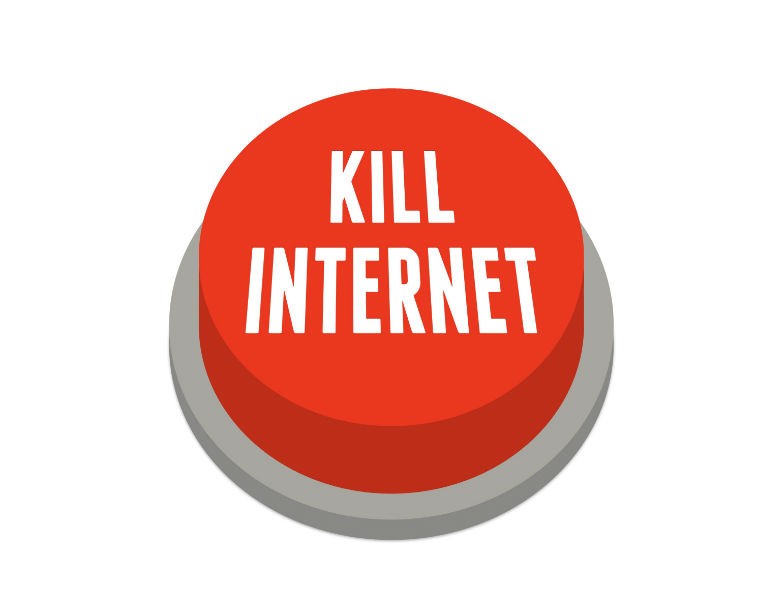
Don't Let Congress (and Comcast) Derail Real Net Neutrality
This piece originally appeared in the Huffington Post.
There's a rule of thumb for influencing policy in Washington: When you're winning, hurry up.
And when you're losing, slow everything down.
It's a pretty reliable guide to understanding Congress' sudden interest in “compromise” legislation governing the open Internet. With the Federal Communications Commission finally poised to “reclassify” broadband and adopt legally defensible Internet rules, Comcast and friends are trying to pull the emergency brake.
On Wednesday, diehard Net Neutrality opponents Sen. John Thune and Rep. Fred Upton — the new Republican chairmen of the key congressional committees overseeing the Internet — published an Op-Ed revealing their newfound interest in “updated and reasonable rules of the digital road to protect an open Internet.”
The duo is scheduling hearings for next week and preparing legislation that could be marked up before the end of the month. This new concoction might be dressed up as a “compromise,” but its purpose is clear: Derail FCC action before the agency votes on new rules on Feb. 26.
On the surface, the Republican proposal looks almost reasonable — and the rhetoric Thune and Upton are using is a testament to just how far we've come in this debate. The same members of Congress who have called Net Neutrality “unjustified” and a “solution in search of a problem” are now promising “unambiguous rules of the road” to “prohibit blocking and throttling” and “gatekeeper interference.”
Don't be fooled. What matters is what's missing from Thune and Upton's list of priorities — and those omissions have Comcast's fingerprints all over them.
Most notably, there's no discussion of “nondiscrimination,” which is the essence of Net Neutrality and the most important part of the Title II approach endorsed by President Obama and millions of Americans. Furthermore, the bill seems designed to strip the FCC of any meaningful authority or enforcement mechanisms.
Thune and Upton attempt to paint the Communications Act as an outdated relic. But the truth is that the existing law — passed with bipartisan support in 1996 — gives the FCC the power to keep all two-way communications networks open and free from discrimination, as well as to ensure that essential services like broadband access are universally available, competitive and affordable. This new bill would take away the FCC's ability to uphold these values and to respond to changing markets and technologies.
The Internet exists today because of Title II of the Communications Act. Precisely because they didn't need to ask the FCC or phone companies for permission, researchers were able to use telecommunications services to connect computers together to form the Internet. This bill will kill any hope of a more open, more secure Internet; it's designed to give the big ISPs total control over the future of the Net.
Another clue to the Republican leaders' true intentions is their citation of a thoroughly debunked "study" from the so-called Progressive Policy Institute. In the study, PPI falsely claimed that Title II could lead to as much as $15 billion in new taxes on Internet users. The recent reauthorization of the Internet Tax Freedom Act killed any such threat. (Sen. Ron Wyden called PPI's claims "baloney.") But thanks to the cable lobby, the Wall Street Journal and noted progressive Grover Norquist, this zombie lie keeps coming back to life.
Title II won't raise your taxes — but it's essential not only to preventing discrimination but to upholding other critical communications principles like competition, universal service, interconnection and consumer protection. The Thune-Upton approach threatens far more than just Net Neutrality.
This latest legislative effort is intended to confuse Congress and undermine the progress of our people-powered movement for real Net Neutrality. Over the past year, millions of people have mobilized to save the Internet. Even FCC Chairman Tom Wheeler has reversed his position and embraced Title II as the surest way to safeguard Internet users.
This proposed legislation should be exposed for what it is: a cynical effort by the cable lobby to prevent the FCC from enforcing the law to keep the Internet open. Why would we trust the fiercest opponents of Net Neutrality to protect our Internet freedom?
What Congress needs to do is learn its own history, stick to the facts and let the FCC do its job.
What you should do is make sure your senators and representatives don't fall into Comcast's trap.